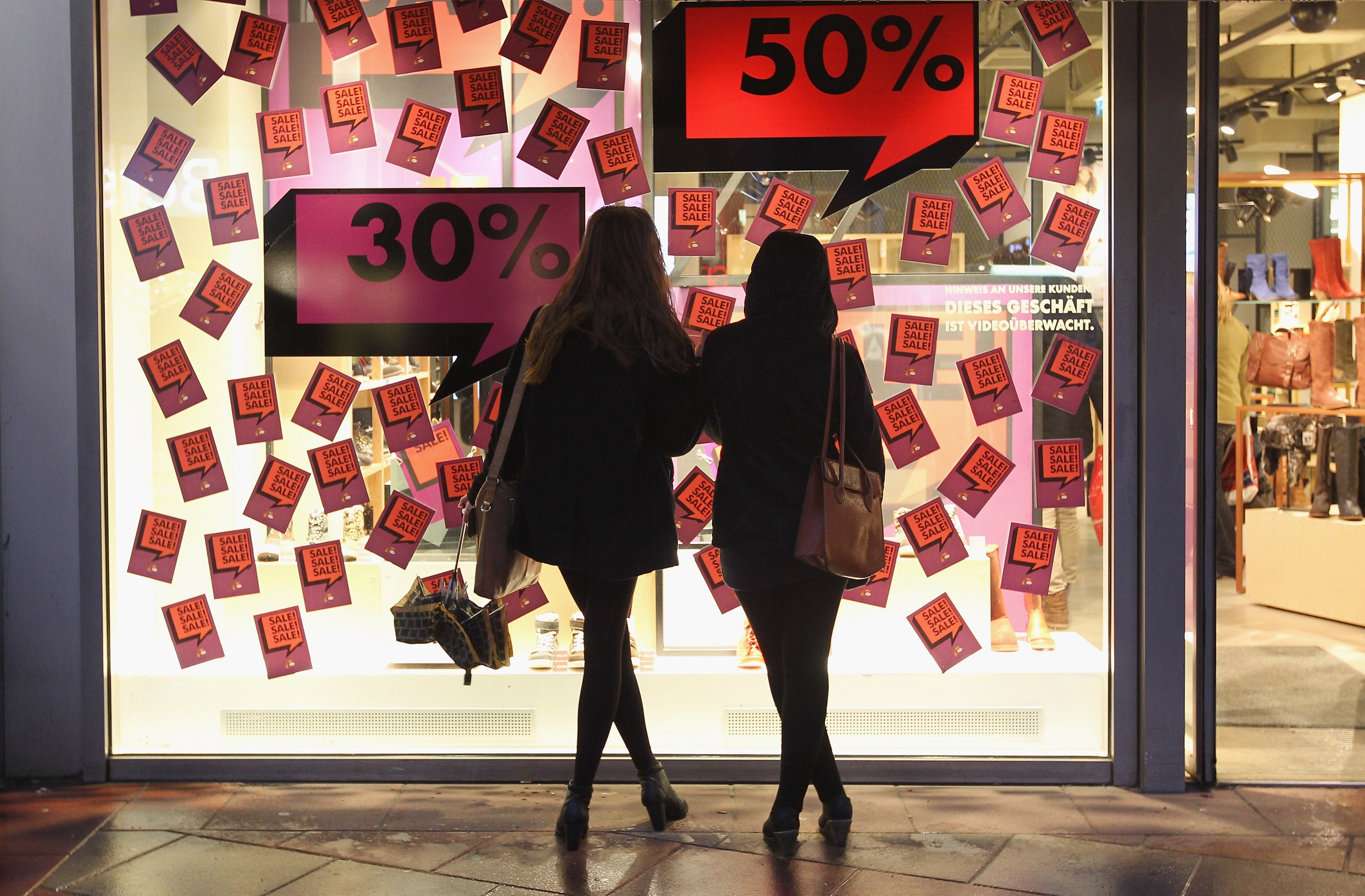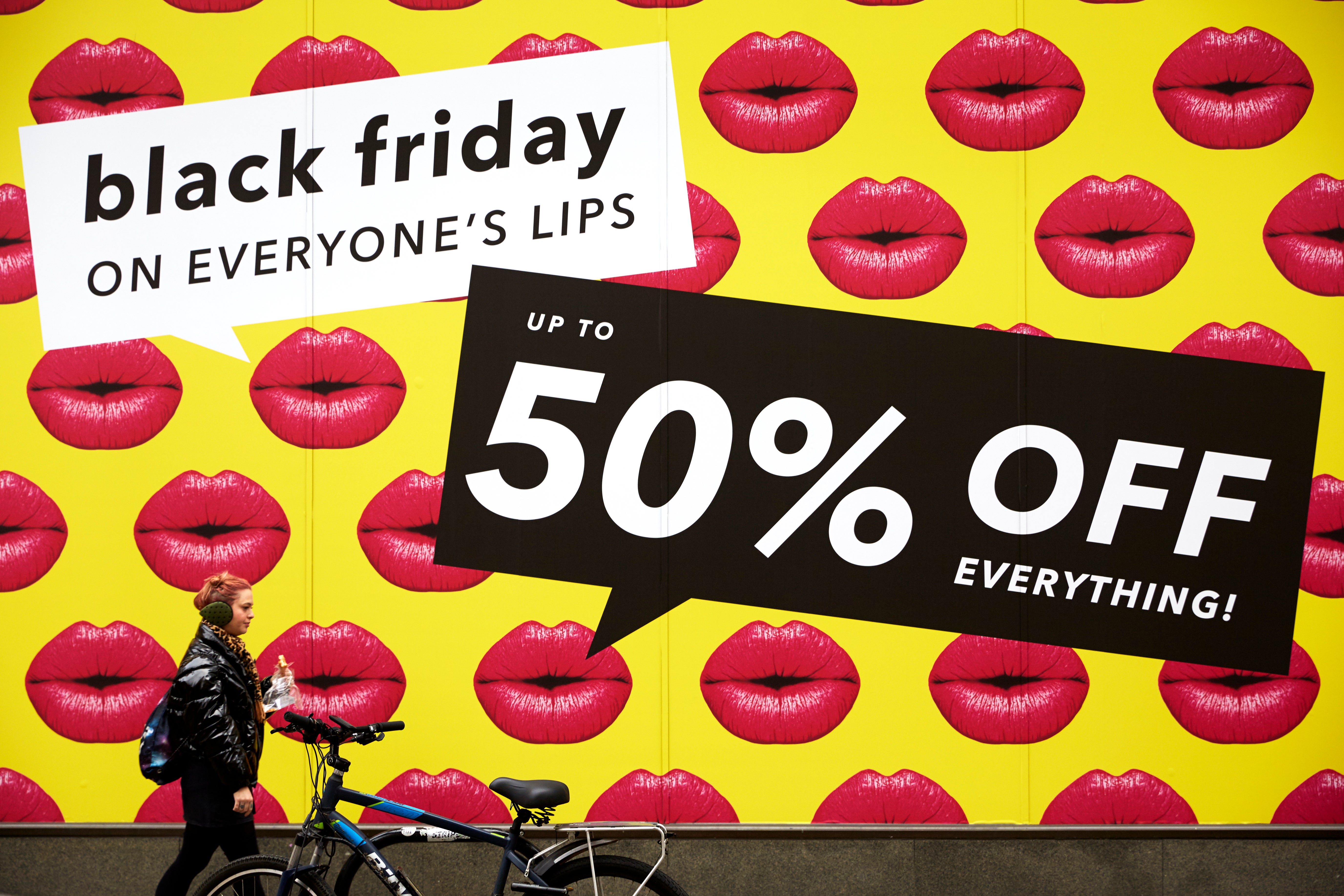The Independent's journalism is supported by our readers. When you purchase through links on our site, we may earn commission.
As a shopping expert, I need to tell you the truth about Black Friday
It is the date we love to hate and as a new Netflix documentary exposes the dark arts used by some of the world’s biggest brands, Mara Einstein, author of Hoodwinked, explains how they use tactics of cults to lure us in

It was 5am on the morning after Thanksgiving 2008. More than 2,000 shoppers waited outside Walmart in Valley Stream, New York, for a chance to be the first ones to get the “best deals of the season”. Restless after waiting outside in the cold – some for hours – once the doors were unlocked the crowd surged forwards, broke the glass doors, and stampeded into the store.
In their mania to get a deal, they trampled 34-year-old Jdimytai Damour to death. And, as if that was not shocking enough, when announcements were made that the store was closing due to the tragedy, people just kept on shopping.
This was not a one-off incident. The website Black Friday Death Count kept track of the death toll in shops around the world from Vancouver to South Africa until 2021, noting 17 deaths and more than 100 injuries. Since then, shopper violence has escalated, all in the name of a “great deal” – for consumerism at least...
So, how did we get here? How did the day after Thanksgiving morph from family time into a manic, over-the-top shopping bun fight? And how did it end up being such a retail event in the UK, where Thanksgiving isn’t even a British holiday?
The term “Black Friday” was coined in the 19th century to describe a financial panic. In the 1980s, retailers rebranded the term to erase its negative connotations. Black Friday was no longer about financial fear, but rather about bottom line abundance – over-the-top promotion to move retailers from “in the red” (losing money) to “in the black” (achieving profitability).
The day launched the official holiday shopping season with extreme discounts and extended store hours, fueled by “doorbuster” deals. And today, the end-of-year holiday season is the biggest consumer spending season of the year in terms of overall numbers.
The last two months of the year can account for as much as 30 per cent of a retailer’s annual revenue. In 2023, the per person holiday expenditure was between £700-980 per person, and in 2024, UK consumers are expected to spend £3.18bn on Black Friday alone, which is up 5.6 per cent from last year.
Sales are expected to reach £9.14bn between 29 November and 2 December when Black Friday rolls into Cyber Monday, and over £23bn over the two weeks that follow.
As I argue in my book, Hoodwinked, marketers use the same tactics as cults – from targeting the vulnerable to withholding information to creating in-and-out groups. As always, marketers are playing on your emotions to get you to buy, and that has been exacerbated in recent years because of online marketing. Here are some of the tactics that will be used in the Cult of Black Friday.
They will lure you with deception
Buying from Amazon or your favourite online outlet is fun and fast, but it comes with consequences. Online shopping is intended to not only sell you something, but also to turn you into the thing that is being sold. Data collecting and sometimes data sharing (Amazon and Meta are now aligned to make it easier to shop across platforms) exist to be sold to marketers who target you with products and services they believe you want to buy based on your shopping behaviour on- and offline.

They will use your information against you
On the face of it, data collecting sounds innocuous. However, this information is used for everything from digital redlining (denying you loans or mortgages), to determining what job opportunities you will be shown. Data brokers claim to have 2,500 pieces of data on every American. People in the UK are more protected from this through GDPR, but that computer cookie still knows how to crumble and, if you’re not careful, those crumbs will leave your shopping habit profile across the internet.
Deception is everything
Black Friday sales are not necessarily the best deals. Products sold on Black Friday may be discontinued so it’s impossible to compare them to other stores. Stores may also artificially increase the price before the holidays and then reduce it for the holiday sale, offering a price similar to six months earlier. So that toaster or laptop that you’re buying might have been just as good a deal – or an even better one – when they weren’t even on sale.
You are made to rage against ‘others’
The best way to keep people connected to their phones – where you will be bombarded by Black Friday deals – is by so-called rage farming. This is a common tactic among online influencers because it increases engagement, which increases their earning potential. It’s great for them, not so great for you. While rage makes you more likely to share and like content, this emotion begs for release creating the anxiety-purchase-anxiety-purchase hamster wheel that is commonly found on social media. At the same time, it separates people into belief silos, making traditional isolating cult compounds irrelevant.

Digital technology is designed to hook you through intermittent rewards – sometimes you get what you want and sometimes you don’t. Will you get a text from a loved one or a notification of the next political appointment? Did people like your TikTok or did you stop going viral? It works the same way Las Vegas slot machines do, and it is meant to circumvent your thinking process, leading you to mindlessly pick up your phone and get lured in to spend some money.
Connection becomes everything
Unlike advertising that is pushed at you, emails are something you opted into and so you are in your comfort zone. Because of this, you are more vulnerable to messaging and more likely to be receptive to their come-on. Research shows that email marketing is more effective than influencers. So, while you think #TikTokMadeMeBuyIt, that is more fiction than fact.

Beware of ‘false go(od)s’
It is common practice for retailers and companies to take a loss on one product in order to make money on another. So, a department store might mark down small items, but hope that you might walk out with a flat-screen TV. This is especially true during the holidays because the expectation is that if you’ve done all the work of fighting the crowds you will buy other things in the store. Alternatively, a company like Sony will sell their Play Station for $499, which sounds like a lot of money but is actually a loss for the company. They do it because they know you have to buy the games that go with it.
This leads me to the last tactic: social proof. People are influenced by seeing the behaviour of others. The more they see it, the more it provides proof that this is something that society approves of and spurs us or our children to desire something because it gives us kudos and a feeling of acceptance.
But as 2024 kicked off with the #Deinfluencing anti-consumption trend, maybe 2025 will herald a new era of mindful shopping. The planet will thank us because we don’t need so much stuff, and our brains will be calmer if we can step away from the buy button on our phones. Something to remember this year as retailers become more panicked because Thanksgiving is late, making the holiday shopping season shorter than usual.
Buy Now! The Shopping Conspiracy Theory is available to stream on Netflix from Wednesday 20 November. Mara Einstein’s book Hoodwinked: How Marketers Use the Same Tactics as Cults is out on 4 February 2025




Join our commenting forum
Join thought-provoking conversations, follow other Independent readers and see their replies
Comments